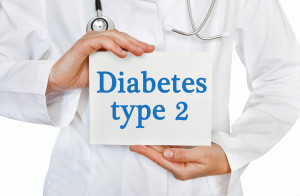By Iris Farrou
01 Nov, 2022
Health Conditions and Pregnancy, Lifestyle Tips, New Moms, Nutrition, Pregnancy, Women's Health, Your baby's health
Common pregnancy complications, Gestational diabetes, Gestational Diabetes Mellitus, lower diabetes risk

You may be familiar with Diabetes Type 1 and Type 2, but did you know there is also a bonus one, called Gestational Diabetes Mellitus– or Gestational Diabetes for short? Gestational Diabetes is diabetes that’s diagnosed for the first time during the gestation period, aka pregnancy. Contrary to Type 1 diabetes, GDM is not caused by a lack of insulin. Instead, it is caused by hormones produced during pregnancy that make insulin ineffective. This is also known as insulin resistance, whereby the mother’s body does not use insulin as it should. Like other types of diabetes, GDM affects how cells use sugar. About 3-8% of pregnant people in the US are diagnosed with gestational diabetes; its symptoms disappear after delivery, and the great news is that you can help control gestational diabetes!
Symptoms: gestational diabetes does not have any symptoms on its own, except increased thirst and frequent urination (which could be pregnancy related regardless). If you are risk for Type 1 diabetes because one of your parents or siblings has it, or at risk for Type 2 diabetes because you are prediabetic, over 45 y/o, may be overweight, don’t exercise often, or have previously had gestational diabetes, your doctor may deem you are at high risk for GDM and suggest you be tested.
Risks: GDM is not like Type 1 Diabetes which can cause birth defects–in fact, GDM arrives too late in a pregnancy to cause any birth defects. Insulin resistance starts showing up around Week 24. Therefore, and thankfully, the complications are manageable and preventable. Generally, gestational diabetes may cause macrosomia and hypoglycemia, which are the two major health issues associated with it. Macrosomia refers to an excessively large fetus and hypoglycemia refers to low blood sugar in the baby immediately after delivery.
Treatment: there are available treatments for gestational diabetes, and many depend on your age, overall health, and medical history. However, the most common ways to manage GDM are to regularly check your blood sugar so it stays on healthy levels, creating a healthy eating plan with your doctor and following it, being active, and monitoring your baby.
As is the case with any pregnancy complication, it is understandable that it may cause you stress. While there is no certain way to prevent stress, do know that gestational diabetes is very manageable and has very low health risks for your baby. In fact, your own stress may cause more complications during pregnancy than gestational diabetes. You can better gauge your risk for GDM by checking your family history and having a general health assessment with your doctor early on in, or even before, your pregnancy. It is advisable to attend all your prenatal appointments, voice your concerns with your doctor, and maintain a healthy lifestyle to address the possible risks of gestational diabetes.
https://www.mayoclinic.org/diseases-conditions/gestational-diabetes/symptoms-causes/syc-20355339
https://www.cdc.gov/diabetes/basics/gestational.html
https://www.hopkinsmedicine.org/health/conditions-and-diseases/diabetes/gestational-diabetes
More
 Individuals living with type II diabetes live their lives balancing on a dangerously thin line. They must constantly monitor their blood, manage symptoms, and try to manage the lifestyle choices that impact their health. If you or a loved one are suffering from type II diabetes, then you know all too well about the day-to-day struggles of this often-avoidable disease. The good news is that there are choices you can make that will help to lower your risk and help you to protect yourself from this damaging, and potentially deadly condition.
Individuals living with type II diabetes live their lives balancing on a dangerously thin line. They must constantly monitor their blood, manage symptoms, and try to manage the lifestyle choices that impact their health. If you or a loved one are suffering from type II diabetes, then you know all too well about the day-to-day struggles of this often-avoidable disease. The good news is that there are choices you can make that will help to lower your risk and help you to protect yourself from this damaging, and potentially deadly condition.
What is Type II Diabetes?
Type II diabetes is a condition that causes glucose, or sugar, levels in the blood to rise to abnormal levels, a state known as hyperglycemia. In addition, individuals with type II diabetes do not produce proper amounts of insulin, the chemical that helps to regulate glucose levels, leading to further complications. According to Healthline, 29.1 million Americans suffer from diabetes, yet 8.1 million may be undiagnosed or unaware of their condition. That means more than one in every ten adults age 20 or older have diabetes. These staggering numbers underscore the need for education, and self-awareness, to help reduce the number of new diagnoses each year.
Type II Diabetes Risk Factors
Type II is the most common form of diabetes. You may be at an increased risk of developing type II diabetes if you:
- Are overweight
- Have an immediate family member with type II diabetes
- Experienced gestational diabetes during pregnancy
- Have already been diagnosed as being prediabetic
- Have high blood pressure
- Have high cholesterol
- Smoke
How to Lower Your Risk for Type II Diabetes
Living a healthy lifestyle, which includes staying active and maintaining a healthy weight, are essential to lowering your risk for type II diabetes. Experts suggest that to minimize your chance of developing the disease, you should follow the tips below:
- Maintain a healthy weight. Obesity is a serious risk factor for type II diabetes. If you are overweight, talk to your doctor about a weight-loss plan that will work for you.
- Stay active. An important part of any plan to maintain a healthy weight needs to include regular physical activity. The average adult should get at least 30 minutes of physical activity five days a week. If you are not currently getting enough exercise, talk to your doctor about how to get started.
- If you were diagnosed with gestational diabetes, monitor your glucose levels. Six to 12 weeks after your baby is born, your doctor will want to test your blood glucose levels. If levels are still too high, your doctor may diagnose you as having type II diabetes. If your levels are normal, your doctor will likely want to continue testing your glucose levels every three years to ensure you have not developed the condition.
- Breastfeed your newborn. If you were diagnosed with gestational diabetes, your doctor will likely suggest that you breastfeed your newborn. Doing so will help ensure your baby receives proper nutrients and will help you burn calories.
If you believe that you may be at risk for developing type II diabetes, do not wait to talk to your doctor. He/she can help you put together a plan to start making the types of lifestyle changes that can help you lower your risk and maintain your overall health.
More


